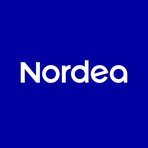Nordea Bank's Strategic Share Buyback: A Closer Look
April 9, 2025, 10:32 am
Nordea Bank Abp is making waves in the financial world with its recent share buyback program. This initiative, announced on March 6, 2025, is a strategic move to enhance shareholder value and optimize capital. The bank's actions on April 7 and April 8, 2025, reveal a calculated approach to repurchasing its own shares, showcasing its commitment to investors.
On April 7, Nordea completed the repurchase of 536,459 shares at an average price of €10.13 per share. The total cost for this transaction was approximately €5.43 million. The following day, the bank continued its momentum, buying back another 523,018 shares at an average price of €10.39, costing around €5.43 million. Together, these transactions reflect a robust commitment to returning capital to shareholders.
The backdrop of this buyback is the bank's authorization from its Annual General Meeting in 2024, allowing for a maximum repurchase of €250 million. This significant figure underscores Nordea's confidence in its financial health and future prospects. The bank's strategy aligns with a broader trend among financial institutions, where share buybacks are often seen as a way to bolster stock prices and signal strength to the market.
Nordea's approach is methodical. The bank executed these repurchases across multiple trading venues, including XHEL, XSTO, and XCSE. This diversified strategy not only enhances liquidity but also ensures that the buyback process is efficient and transparent. The weighted average prices for the shares purchased varied slightly between the two days, indicating a responsive strategy to market conditions.
As of the latest transactions, Nordea holds a total of 7,795,872 treasury shares earmarked for capital optimization. Additionally, it retains 10,300,012 treasury shares for remuneration purposes. This dual strategy highlights the bank's intention to balance shareholder returns with employee incentives, a critical aspect of maintaining a motivated workforce.
The regulatory framework governing these transactions is also noteworthy. Nordea's buybacks comply with Regulation No. 596/2014 of the European Parliament and Council, ensuring that the bank operates within legal boundaries while executing its strategy. This adherence to regulations not only protects the bank but also instills confidence among investors.
In the world of finance, share buybacks can be a double-edged sword. While they can boost stock prices and signal confidence, they can also raise questions about a company's growth prospects. Critics argue that funds used for buybacks could be better invested in growth initiatives. However, Nordea's management appears to believe that returning capital to shareholders is the right move at this juncture.
The timing of these buybacks is crucial. In a fluctuating market, Nordea's actions suggest a proactive stance. By repurchasing shares, the bank is not just reacting to current conditions but is also positioning itself for future growth. This forward-thinking approach is essential in today's fast-paced financial landscape.
Moreover, the impact of these buybacks extends beyond immediate financial metrics. They can influence investor sentiment and market perception. A well-executed buyback can create a positive feedback loop, attracting more investors and potentially driving up the stock price. For Nordea, this could mean enhanced market presence and a stronger competitive position.
As the financial landscape evolves, Nordea's share buyback program may serve as a case study for other institutions. It illustrates the delicate balance between returning capital to shareholders and investing in future growth. The bank's strategy could inspire similar initiatives across the industry, especially in times of economic uncertainty.
In conclusion, Nordea Bank Abp's recent share buyback activities reflect a strategic commitment to enhancing shareholder value. With a clear authorization from its Annual General Meeting and a well-executed plan, the bank is navigating the complexities of the financial market with confidence. The dual focus on capital optimization and employee remuneration showcases a holistic approach to corporate governance. As Nordea continues to execute its buyback program, the financial community will be watching closely, eager to see how this strategy unfolds in the coming months. The bank's actions may very well set the tone for future initiatives in the banking sector, making it a pivotal player in the ongoing narrative of financial resilience and growth.
On April 7, Nordea completed the repurchase of 536,459 shares at an average price of €10.13 per share. The total cost for this transaction was approximately €5.43 million. The following day, the bank continued its momentum, buying back another 523,018 shares at an average price of €10.39, costing around €5.43 million. Together, these transactions reflect a robust commitment to returning capital to shareholders.
The backdrop of this buyback is the bank's authorization from its Annual General Meeting in 2024, allowing for a maximum repurchase of €250 million. This significant figure underscores Nordea's confidence in its financial health and future prospects. The bank's strategy aligns with a broader trend among financial institutions, where share buybacks are often seen as a way to bolster stock prices and signal strength to the market.
Nordea's approach is methodical. The bank executed these repurchases across multiple trading venues, including XHEL, XSTO, and XCSE. This diversified strategy not only enhances liquidity but also ensures that the buyback process is efficient and transparent. The weighted average prices for the shares purchased varied slightly between the two days, indicating a responsive strategy to market conditions.
As of the latest transactions, Nordea holds a total of 7,795,872 treasury shares earmarked for capital optimization. Additionally, it retains 10,300,012 treasury shares for remuneration purposes. This dual strategy highlights the bank's intention to balance shareholder returns with employee incentives, a critical aspect of maintaining a motivated workforce.
The regulatory framework governing these transactions is also noteworthy. Nordea's buybacks comply with Regulation No. 596/2014 of the European Parliament and Council, ensuring that the bank operates within legal boundaries while executing its strategy. This adherence to regulations not only protects the bank but also instills confidence among investors.
In the world of finance, share buybacks can be a double-edged sword. While they can boost stock prices and signal confidence, they can also raise questions about a company's growth prospects. Critics argue that funds used for buybacks could be better invested in growth initiatives. However, Nordea's management appears to believe that returning capital to shareholders is the right move at this juncture.
The timing of these buybacks is crucial. In a fluctuating market, Nordea's actions suggest a proactive stance. By repurchasing shares, the bank is not just reacting to current conditions but is also positioning itself for future growth. This forward-thinking approach is essential in today's fast-paced financial landscape.
Moreover, the impact of these buybacks extends beyond immediate financial metrics. They can influence investor sentiment and market perception. A well-executed buyback can create a positive feedback loop, attracting more investors and potentially driving up the stock price. For Nordea, this could mean enhanced market presence and a stronger competitive position.
As the financial landscape evolves, Nordea's share buyback program may serve as a case study for other institutions. It illustrates the delicate balance between returning capital to shareholders and investing in future growth. The bank's strategy could inspire similar initiatives across the industry, especially in times of economic uncertainty.
In conclusion, Nordea Bank Abp's recent share buyback activities reflect a strategic commitment to enhancing shareholder value. With a clear authorization from its Annual General Meeting and a well-executed plan, the bank is navigating the complexities of the financial market with confidence. The dual focus on capital optimization and employee remuneration showcases a holistic approach to corporate governance. As Nordea continues to execute its buyback program, the financial community will be watching closely, eager to see how this strategy unfolds in the coming months. The bank's actions may very well set the tone for future initiatives in the banking sector, making it a pivotal player in the ongoing narrative of financial resilience and growth.

